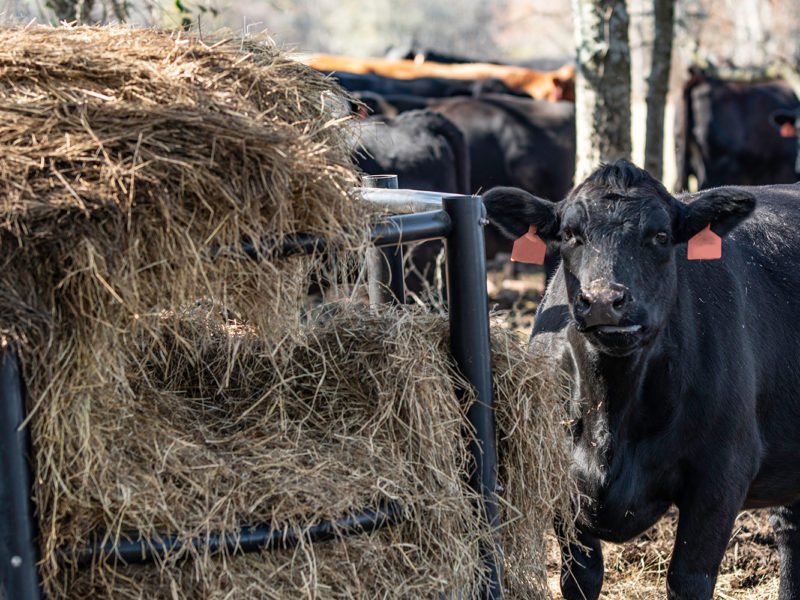Cattle producers asked their drought-related nutrition questions to a panel of experts during a Beef Cattle Research Council webinar on July 29.
The panel stressed the importance of feed testing during drought conditions. Tests shows if a crop is safe to feed on its own or whether it needs to be mixed with other feedstuffs. While the number of samples is dependent on the size of the field, 20 to 25 samples usually provides a good representation of a field’s nutritional or risk levels.
Feed samples can help producers monitor nitrate levels in forages and other crops. Nitrates present an issue in annual forages such as oats and barley.
Drought stress can cause nitrate accumulation in plants, especially if high rates of nitrogen are applied pre-plant or in-season. Without moisture, plant metabolism slows, and nitrates may linger in the stem.
A nitrate level above 0.5% should be monitored and managed. Diluting high-nitrate feeds can reduce the risk of nitrate poisoning. To avoid the shock to their system, a seven to 10-day transition period helps cattle safely transition to feed with higher nitrate levels.
Poor canola stands in Manitoba, Saskatchewan and parts of Alberta have producers looking to this crop as a potential green feed. However, farmers should exercise caution because canola can cause white muscle disease in calves because of vitamin deficiencies. Canola is high in sulfates, which can tie up selenium, vitamin E and copper. Producers can mix these vitamins into the ration or use ruminal boluses or injections. Specialists recommend that canola hay or silage should make up no more than 50% of a ration. BCRC released a salvage crop calculator so producers can determine the value of alternative feeds for their livestock.
Farmers should also be aware of the amount of straw they feed to cattle. Straw is high in fibre but poorly digestible. It is also low in minerals, vitamins, energy and protein. As a rule of thumb, producers can feed between 1.25% and 1.5% of a cow’s body weight in straw. For example, a 1,400 lb cow can consume between 18 and 22 lbs of straw in its ration. Producers should use caution when resorting to feeding straw as the cows will also require feeds that provide greater energy and nutritional value. However, grain may cause acidosis if the cattle aren’t used to a feedlot-like ration.
Panelists included Dr. Cheryl Waldner, the NSERC/Beef Cattle Research Council senior research chair in beef cattle health in large animal clinical sciences at the Western College of Veterinary Medicine; Dr. Bart Lardner, a professor in the department of animal and poultry science at the University of Saskatchewan; Dr. Andrew Acton, a cattle rancher and veterinarian at Deep South Animal Clinic in Ogema, Saskatchewan; and Dr. John McKinnon, professor emeritus in the animal and poultry science department at the University of Saskatchewan and owner of a nutrition consulting company.
More information and resources are available at [beefresearch.ca/droughtmanagement].


 COVID influences food demand
COVID influences food demand